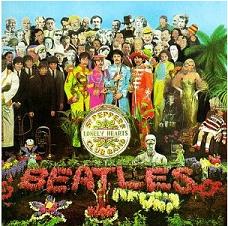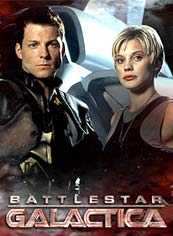 Nearly 50 years after they met, and despite thousands of articles, books, radio interviews, film documentaries and tribute albums, we’re still finding out how little we know about The Beatles, as a band and a phenomenon. Even Paul McCartney is finding out about his own songs, as John Colapinto’s profile “When I’m Sixty Four” in the June 4 The New Yorker shows (not yet online, but here‘s the magazine’s site). All these years later, the Beatle, whose mother died when he was 14, wonders about the lines, “Why she had to go I don’t know / She didn’t say,” from “Yesterday.” “Was that hearkening back to my mum?” he asks.
Nearly 50 years after they met, and despite thousands of articles, books, radio interviews, film documentaries and tribute albums, we’re still finding out how little we know about The Beatles, as a band and a phenomenon. Even Paul McCartney is finding out about his own songs, as John Colapinto’s profile “When I’m Sixty Four” in the June 4 The New Yorker shows (not yet online, but here‘s the magazine’s site). All these years later, the Beatle, whose mother died when he was 14, wonders about the lines, “Why she had to go I don’t know / She didn’t say,” from “Yesterday.” “Was that hearkening back to my mum?” he asks.
Conventional wisdom about the music is also still settling. Traditionally, on the major anniversaries of the release of “Sgt. Pepper’s Lonely Hearts Club Band” (today is the 40th) the album is offered as the essential document of The Summer of Love, the turned-on, dropped-out agape-fest whose capital was the hippified Haight-Ashbury district of San Francisco. Love, though, is precisely what is lacking in most of the tracks on “Sgt. Pepper”: on “She’s Leaving Home” a young woman creeps away from her repressed parents, “Fixing a Hole” is a moody, misanthropic daydream and “A Day in the Life” shows a common man numbed to experience by the media and daily routine.
Even “With a Little Help from My Friends” is more about the isolation of personhood than the support of community, and “When I’m Sixty-Four” is an uncertain plea for love. George Harrison’s contribution, “Within You and Without You,” draws from his enthusiasm for Hindu teaching (the album’s famously crowded cover depicts no fewer than four Indian gurus), making it about the most affirming song on the album. “With our love we could save the world,” he sings. But George spends more time bemoaning “People who hide themselves behind a wall of illusion/Never glimpse the truth/Then it’s far too late when they pass away.”
Spiritually, “Sgt. Pepper” contains more of the bleakness of “Revolver,” the album that preceded it, than it does the “All You Need Is Love” spirit of “Magical Mystery Tour,” which followed just five months later. It’s that album, with its carnival atmosphere, heroically stoned Nowhere Man, and overstated, bland psychedelia of “Strawberry Fields” that better reflects the indulgences of Summer of Love. And that’s why we’re still talking about the more spiritually challenging, and still spiritually relevant,”Sgt. Pepper” 40 years later.


